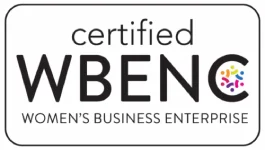Compliance Recap- July 2016

During the month of July numerous new regulations were issued or proposed by federal agencies, and existing forms and processes were updated. In particular, penalties for various ERISA violations were increased, a major overhaul to Form 5500 filings was proposed, and draft 1095-C and 1094-C forms were released. Proposed regulations were also released relating to the individual mandate and opt-out arrangements.
UBA Updates
UBA released two new compliance advisors:
UBA also released two comparison charts of all the Certified Solutions that offer compliance- or wellness-related services.
IRS Reporting Forms Proposed
The IRS has released the draft 2016 forms for the 1094-C, 1095-C, 1094-B, and 1095-B for 2016. The forms have only a few changes from the 2015 forms.
The biggest change was for the Line 14 codes on the 1095-C. The new codes are:
- 1I – Reserved
- 1J – Minimum essential coverage providing minimum value offered to you; minimum essential coverage conditionally offered to your spouse; and minimum essential coverage NOT offered to your dependent(s)
- 1K – Minimum essential coverage providing minimum value offered to you; minimum essential coverage conditionally offered to your spouse; and minimum essential coverage offered to your dependent(s)
The other change was for Form1094-C, Line 22. For 2016, Box “B” (qualifying offer method transition relief) is now “reserved” as the transition relief expired after 2015.
The IRS will finalize the 2016 forms in the coming months.
Increased ERISA Related Penalties
On July 1, 2016, the DOL issued an interim final rule, effective August 1, 2016, to adjust the amounts of civil penalties as required by the Federal Civil Penalties Inflation Adjustment Act Improvements Act of 2015. In order to improve the effectiveness of civil monetary penalties, maintain their deterrent effects, keep pace with inflation and promote compliance with the law, Congress enacted legislation requiring agencies to adjust the levels of civil monetary penalties with catch-up adjustments as well as annual adjustments to account for inflation. Future adjustments will be made by January 15 of each year, starting in 2017.
The interim final rule made adjustments to the civil monetary penalties enforced by the Employee Benefits Security Administration (EBSA) under the Employee Retirement Income Security Act of 1974 (ERISA). The adjustments apply to penalties assessed after August 1, 2016, whose violations occurred after November 2, 2015.
Read more about the increased penalties.
Form 5500 Proposed Rule
The DOL, IRS, and Pension Benefit Guaranty Corporation have issued two significant proposed rules that would substantially change Form 5500 reporting requirements for most employers. These proposals are intended to expand and modernize financial reporting, eliminate “obsolete” exemptions, incorporate new reporting requirements for group health plans and health insurance issuers of all sizes, modernize the data collection and usability, and improve reporting of service provider fees and expense information. If finalized, these rules would go into effect in January 2019.
Read more about the proposed regulations for Form 5500.
Individual Mandate, Opt-Out Proposals
The individual responsibility requirement (also known as the individual mandate) became effective for most people as of January 1, 2014. Under the individual mandate, most people residing in the U.S. are required to have minimum essential coverage or they must pay a penalty. Many individuals will be eligible for financial assistance through premium tax credits (also known as premium subsidies) to help them purchase coverage if they buy coverage through the health insurance Marketplace (also known as the Exchange).
On July 8, 2016, the Department of the Treasury issued proposed regulations relating to the health insurance premium tax credit (premium tax credit) and the individual shared responsibility provision.
The proposed regulations affect:
- Individuals who enroll in qualified health plans through the health insurance exchanges and claim the premium tax credit
- The exchanges that make qualified health plans available to individuals and employers
- Individuals who are eligible for employer-sponsored health coverage
- Individuals who seek to claim an exemption from the individual shared responsibility provision because of unaffordable coverage
The regulations are proposed to apply for taxable years beginning after December 31, 2016, unless otherwise indicated. Taxpayers may rely on certain provisions of the proposed regulations for taxable years ending after December 31, 2013. Rules related to the benchmark plan are proposed to apply for taxable years beginning after December 31, 2018.
Although employers are not directly affected by the rules governing the premium tax credit, these proposed regulations may indirectly affect employers through the employer shared responsibility provisions and the related information reporting provisions.
The current regulations provide that, in determining whether employer-sponsored coverage is affordable to an employee, an employee’s required contribution for the coverage includes the amount by which the employee’s salary would be reduced to enroll in the coverage. The proposed regulations provide that if an employer makes an opt-out payment available to an employee, then the amount of the payment made under an unconditional opt-out arrangement increases the employee’s required contribution.
Further, the proposed regulations clarify that an unconditional opt-out arrangement that is required under a collective bargaining agreement’s terms in effect before December 16, 2015, will be treated as having been adopted prior to December 16, 2015. The proposed regulations also clarify that employers participating in the collective bargaining agreement are not required to increase the amount of an employee’s required contribution until the later of:
- the beginning of the first plan year that begins after the expiration of the collective bargaining agreement that was in effect before December 16, 2015 (disregarding any extensions on or after December 16, 2015), or
- the applicability date of these regulations with respect to sections 4980H and 6056.
This proposed regulation applies to any successor employer adopting the opt-out arrangement before the expiration of the collective bargaining agreement in effect before December 16, 2015 (disregarding any extensions on or after December 16, 2015).
Read more about the proposed rule.
Question of the Month
- If an individual is enrolled in his or her employer’s high deductible health plan and accompanying health savings account (HSA), what happens if that individual’s spouse is enrolled in a flexible spending account (FSA) through the spouse’s employer?
- Unless the FSA is a limited use account (covers only dental and vision), the employee with a high deductible plan would lose HSA eligibility in any month the employee’s spouse was enrolled in the FSA, regardless of the tier of coverage either individual is enrolled in (including employee-only coverage). This is because the individual with the FSA is permitted to spend the money in the FSA on his or her spouse, even if the employee is enrolled in employee-only coverage, and even if he or she doesn’t actually spend the money on the spouse. The ability to have expenses paid from the FSA renders the spouse with the high deductible health plan HSA-ineligible.
Categories
Archive









